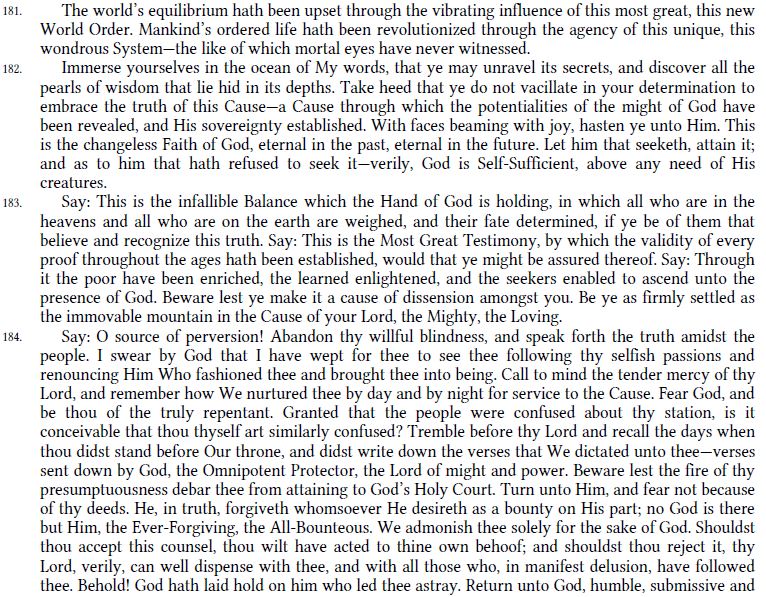A thought that pertains to esotericism and antinomianism.
So one of the books I brought with me during this moving stuff is one on the Assassins (Alamut Nizari Ismailis) and one of the prevalent ideas about them was the idea that they were, in their higher-ups actually purely Kafirs and so forth.
This of course was a myth and a very poor misunderstanding of what Ismailism teaches, which is still Shia Islam but it does have a Neoplatonic tint (which is one of my eers with the Ismailis besides otherwise liking them in their classical period).
However many Ismailis do hold the view of the Pillars of practice as being things that don't need to be adhered to, such as Salaah or Hajj etc.
This gives me good room to explain something crucial, as it seperates initiation and tradition from counter-initiation and counter-tradition (as Rene Guenon calls it).
Gnosis (Marifa/Ihsan) is not an ideology or a belief, it is an experience of knowledge itself through God.
It is not something that one gets through elitist means, and it is open to all who strive in the esoteric path.
True esotericism in regards to Islam, does not oppose or downplay the importance of exoteric basis of the religion.
It understands the station of Ihsan to be within Islam and Iman, not seperate from it.
To forsake Salaah is not something esoteric, it is just plain Kaffir.
The esoteric path is not about abrogation or denying the outward forms of the tradition, it is about diving deeper into these very things, understanding their implications and engaging even MORE intensely with the practical element.
An esotericist does not stop praying and think himself above prayer, an esotericist does the opposite, prays far more longer, intensely and with more heart (Qalb) than the average Muslim.
As for Law, Law is not abrogated, it is absorbed into the profound spiritual and mystical experience that one continues to keep reaching the more you practice and hone your practical skills in prayer, mediation and so far.
The esotericist does not treat the Qur'an or the Sunnah or the Imams with insignificance, rather the esotericist treats the Qur'an, Sunnah and Imams with more significance and listens even more closer, quieter, carefully to what the words of God and the Prophet and the Ahl al-Bayt are implying.
Within the tradition is so much tools and pathways replete to work with that should continue to enrich and inspire.
As we say with immense conviction, the Qur'an is the greatest mystical, talismanic, magical scripture as well as the greatest guide in all aspects of life. One must first grow a very strong relationship with the scripture.
This by no means can come from passive reading, one has to hop inside the text of the scripture, one must situate themselves within the vibrations of the sounds that one utters reciting it, one must hop inside the meanings of the words and the letters of the Arabic alphabet, the numbers, the signs the scripture speaks of, it's warnings, precepts, the wisdom of it's laws. The vibrant profound beauty and power that comes from it is the basis of one's entire life.
This is the book of God, which has passed through billions of hands, minds mouths over the past 1400 years and retains controversy in the west, it is fundamentally the most important book there is.
As for the Ismailis, they get much right but they have a tendency historically after a certain point to go lax and rest on their laurels. Esotericism is just intellectual fluff without the experiential aspect.
Experience is as much reciting the Qur'an (cultivating the Qalb and 'Aql) as it is Salaah and Dhikr.
All of this progressively creates within oneself an awareness and guiding alignment with the way of things in existence. The world no longer becomes just an incoherent sequence of causal phenomenon, you now see that you are part of the thing which God has set in place, to which you are originated, you belong and return to. That God has placed manifest Ayah everywhere in all existence simultaneously and that you as a piece of causal Phenomena can both transform and transmutate things, and that the power of God is over all things, that (as supported overwhelmingly by orthodox Sunnism and Shi'ism) the Surahs of the Qur'an can have direct magical and supernatural miracle effects with intent. That all things can be brought towards the Glory of God.
